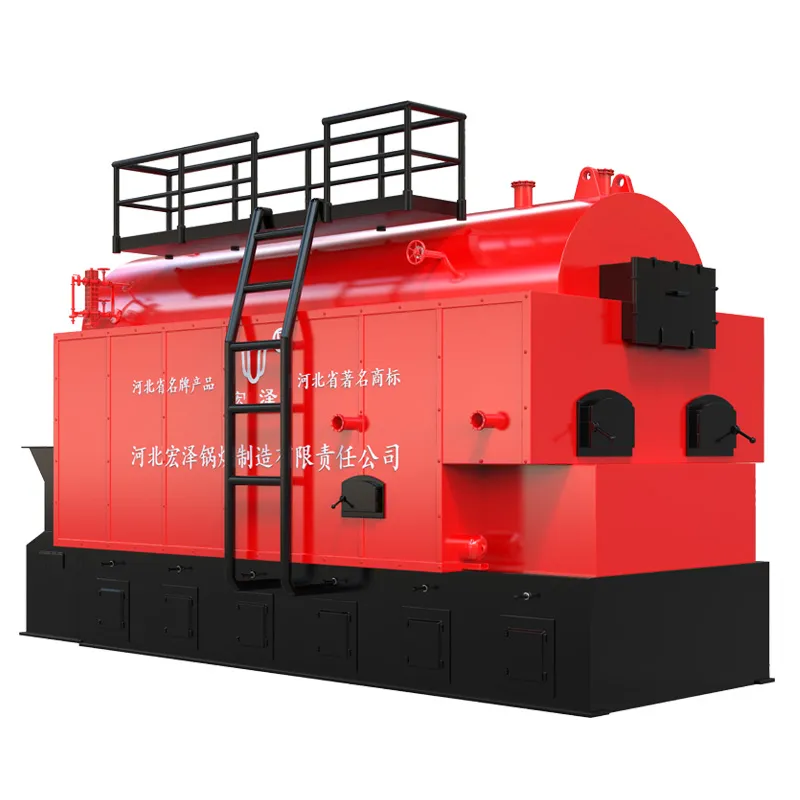
Sep . 30, 2024 03:24 Back to list
Different Types of Water Boilers and Their Uses for Various Applications
Understanding the Various Types of Water Boilers
Water boilers are essential appliances in both residential and commercial settings. They are designed to heat water for a variety of applications, including domestic hot water supply, central heating systems, and industrial processes. There are several types of water boilers, each with its own unique features, benefits, and applications. This article will explore the most common types of water boilers, helping you understand which one may be best suited for your needs.
1. Traditional or Conventional Boilers
Traditional boilers, often referred to as conventional boilers, are one of the oldest designs in the heating industry. These units typically use a tank to store hot water, which can be accessed when needed. This type is often categorized as either a fire-tube or water-tube boiler. Fire-tube boilers pass hot gases through a series of tubes, while water-tube boilers circulate water through tubes that are heated by hot gases.
Benefits - They are reliable and can supply hot water on demand. - They have a relatively simple design, which makes maintenance easier.
Drawbacks - They can take up a lot of space due to the water storage tank. - They may not be as energy-efficient as newer models.
2. Combination Boilers (Combi Boilers)
Combi boilers are a modern innovation that combines both heating and hot water production in a single unit. They are popular in residential settings because they eliminate the need for a separate hot water tank. Combi boilers heat water on demand, providing immediate hot water without the need for a storage system.
Benefits - Space-saving design makes them ideal for smaller homes. - High energy efficiency as they only heat water when required.
Drawbacks - Limited hot water supply may be an issue for larger households with multiple simultaneous demands.
System boilers offer a good balance between efficiency and performance. Unlike combi boilers, they work with a hot water cylinder to store water. However, they do not require a cold water tank, which saves space. System boilers are ideal for homes with higher hot water demands.
types of water boilers

Benefits - Provide a constant supply of hot water to multiple outlets simultaneously. - Generally more efficient than traditional boilers due to their ability to maintain water temperature in the cylinder.
Drawbacks - Requires some space for the hot water cylinder. - Installation may be more complex compared to conventional boilers.
4. High-Efficiency Boilers
High-efficiency boilers are designed to maximize energy usage and minimize waste. They use advanced technology, such as condensing heat exchangers, to capture and reuse heat that would otherwise be lost. These boilers can be fueled by natural gas, oil, or electricity.
Benefits - They can significantly reduce energy bills due to their efficiency. - Lower carbon footprint, making them environmentally friendly.
Drawbacks - Higher initial upfront costs compared to conventional systems. - May require special installations or modifications to existing ductwork.
5. Electric Boilers
Electric boilers are an alternative to traditional gas and oil boilers, using electric power to heat water. They are compact and can be installed in various locations throughout a home or business.
Benefits - Quiet operation and easier to install than gas boilers. - Lower carbon emissions if powered by renewable energy sources.
Drawbacks - Higher operating costs compared to gas boilers in areas where electricity is expensive. - Limited capacity for supplying hot water for large demands simultaneously.
Conclusion
Choosing the right water boiler depends on various factors, including the size of your household, hot water needs, energy efficiency preferences, and available space. Traditional and combination boilers serve different needs, while system boilers cater to high-demand households. High-efficiency and electric boilers offer modern solutions for energy-conscious consumers. Understanding the unique features and benefits of each type will enable you to make a well-informed decision suited to your specific requirements. Investing in the right boiler can enhance comfort and efficiency, ultimately leading to lower energy bills and a more sustainable lifestyle.
-
High-Efficiency Commercial Oil Fired Steam Boiler for Industry
NewsJul.30,2025
-
High-Efficiency Biomass Fired Thermal Oil Boiler Solutions
NewsJul.30,2025
-
High Efficiency Gas Fired Thermal Oil Boiler for Industrial Heating
NewsJul.29,2025
-
High-Efficiency Gas Fired Hot Water Boiler for Sale – Reliable & Affordable
NewsJul.29,2025
-
High Efficiency Biomass Fired Hot Water Boiler for Industrial and Commercial Use
NewsJul.29,2025
-
High-Efficiency Biomass Fired Hot Water Boiler for Industrial Use
NewsJul.28,2025
Related PRODUCTS






















